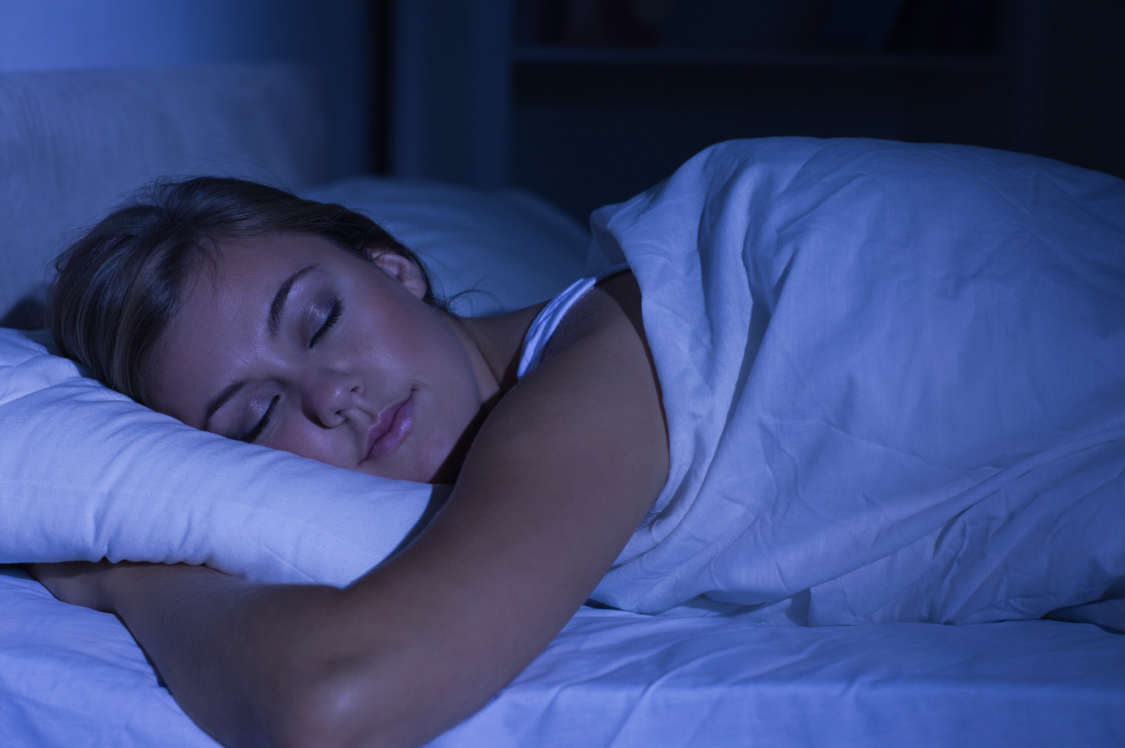Time in bed. Make sure you are setting yourself up for success by being in bed for 7 to 9 hours per night. In other words, you can’t sleep for 8 hours if you’re only in bed for 6.
Routine. Work on going to bed and getting up at the same time every day. This includes weekends, which is when many people stay up and sleep later. This actually leads to something called “social jetlag”, which can throw off your circadian rhythms. No wonder Mondays really stink for some people.
Be active. Being physically and mentally active during the day can help you sleep better at night. In general, regular exercise improves sleep quality; however, some may find that intense exercise close to bedtime may have a negative effect on sleep, which can be the result of increased core temperature and/or nervous system activity.
Block blue light in the evening. Arguably one of the biggest factors disrupting circadian rhythms in today’s society is our exposure to blue light, which is ubiquitous in the forms of fluorescent lightbulbs, cell phones, tablets, computer monitors, TV screens, and more. Blue light suppresses melatonin production, delaying feelings of sleepiness and the onset of our nighttime cycle, disrupting circadian rhythms and sleep. Try the following strategies 2 to 3 hours before bed:
- Avoid TV and computer screens
- Use the app f.lux if you must use your computer
- Use a similar app if you must use your smartphone (i.e., Night Shift for iPhones)
- Dim your lights
- Use amber-tinted light bulbs
- Wear amber-tinted glasses
Bright outdoor light in the morning. On the other side of the coin, getting sunlight exposure first thing the morning can have a substantial effect on setting your circadian clock and help you feel more awake during the day. In fact, a lack of sunlight exposure may be even more to blame for circadian disturbances than excess artificial blue light exposure at night.
Blackout your room. At night, make your room as dark as possible, using dark curtains and removing all sources of artificial light.
Chill out. The ideal bedroom temperature range, between 60 and 67 degrees, can help your body naturally cool, which helps facilitate sleep.
Watch what you drink. Research shows that drinking caffeine-containing beverages even 6 hours before bedtime can have important disruptive effects on sleep. Thus, it’s best to cut off caffeine more than 6 hours before bedtime. And while alcohol may help you fall asleep, it disrupts sleep quality and reduces REM sleep in a dose-dependent manner. In other words, the more you drink, the worse you sleep.
Watch what you eat. Obviously, you don’t want to go to bed too hungry or too full. Generally speaking, it’s best to avoid large mixed meals within a couple hours of bedtime. If you need to eat something after that, a small, healthy snack (~150 calories), such as a protein shake, a piece of fruit, or a handful of nuts, can be beneficial for weight management, appetite control, and body composition.
Take a dump. A “brain dump” that is. If you’re the type of person whose wheels start turning uncontrollable as soon as your head hits the pillow, have a notepad handy on your nightstand. Write down ideas, important thoughts, etc. This can help quiet your mind, and you can also take an honest look to see if there’s anything that you HAVE to do at that very moment.

